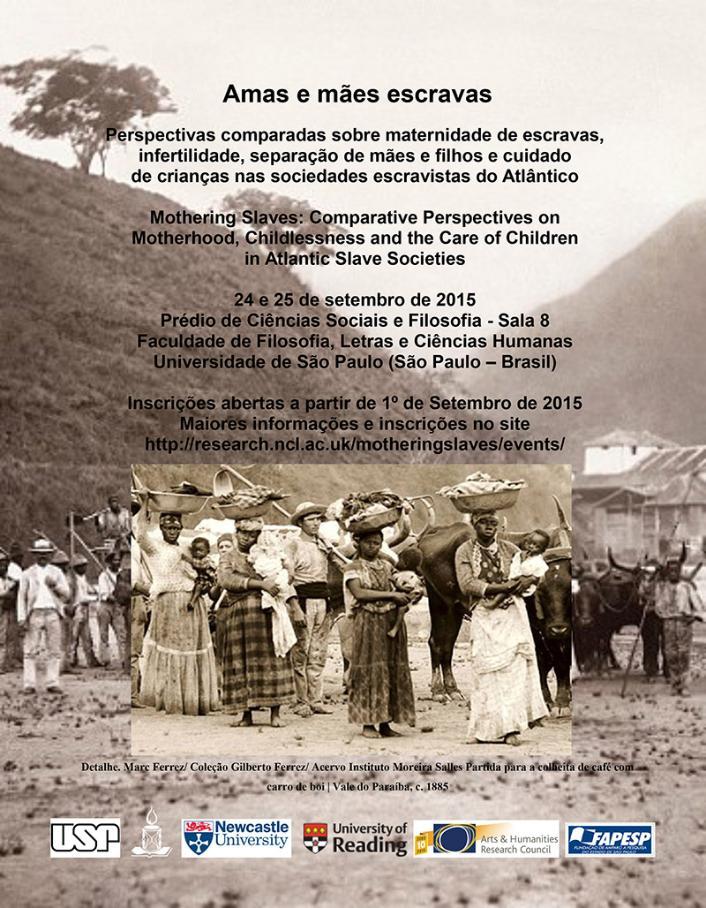São Paulo
Enslaved Motherhood and Childlessness: Comparing Brazil with other Atlantic Slave Societies
Much of the excellent work on Brazilian slavery, largely published in Portuguese, has not been taken up by Anglophone scholars. In light of this, the Mothering Slaves network will host a second symposium in Brazil that will showcase such research in comparative perspective, bringing some of the best scholarship in Brazilian history to historians of other Atlantic slave societies. About two-thirds of the participants are scholars of Brazilian slavery, most of whom are based in Brazil. To enable comparative insights, the remaining third of the participants are scholars working on other slave societies.
-
Venue: Universidade de São Paulo, Brasil
-
Start: Thursday, 24th September 2015 09:00:00 BST
-
End: Friday, 25th September 2015 18:30:00 BST

Pregnancy, Childbearing and Infant Care: Historical Perspectives from Slave and Non-Slave Societies
|
Wednesday 8 April | |
|---|---|
| 10.15 |
Welcome Chair: Maria Helena Machado, Universidade de São Paulo |
| 10.30-12.30 | Panel One: Thinking through Motherhood: Slavery and Beyond Chair: Diana Paton, Newcastle University
|
| 12.30-1.30 | Lunch |
| 1.30-3.30 |
Panel Two: The Politics of Wetnursing Chair: Selina Patel, Newcastle University |
|
|
| 3.30-4.00 | Break |
| 4.00-5.30 |
Keynote address Chair: Emily West, University of Reading |
| 7.30 | Dinner in local restaurant |
|
Thursday 9 April | |
|---|---|
| 9.00-11.00 |
Panel Three: Fertility, Population, and the Politics of Knowledge Chair: Maria Helena Machado, Universidade de São Paulo |
|
|
| 11.00-11.30 | Break |
| 11.30-1.30 |
Panel Four: Medicine and Motherhood Chair: Rosie Knight, University of Reading |
|
|
| 1.30-2.30 | Lunch |
| 2.30-4.00 |
Round table discussion Opening remarks from Diana Paton and Camillia Cowling |
 This site is no longer being maintained.
This site is no longer being maintained.